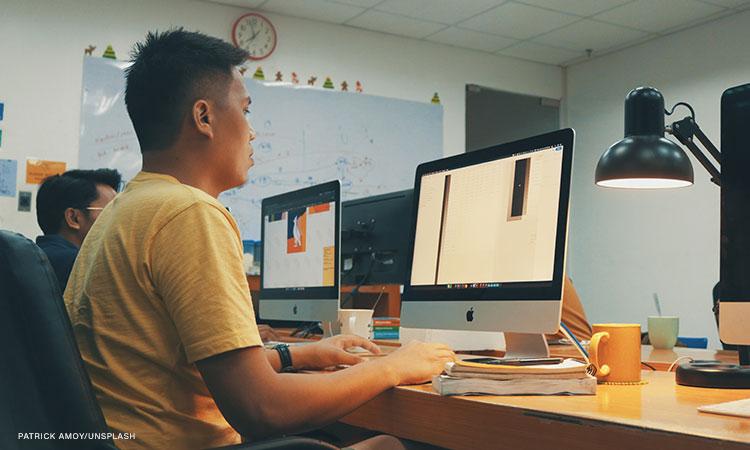The Philippine government will need to swiftly address the rising threat of artificial intelligence (AI), especially on key sectors such as outsourcing, which is one of pillars of the economy. This warning was raised by Dr. Sanjay Sarma, the Dean of the Asia School of Business (ASB) and a professor of mechanical engineering and the Sloan School of Management at the Massachusetts Institute of Technology, during a recent visit to the Philippines.
“In the Philippines, it has to be a national effort [so] the government needs to be really cognizant,” said Sarma, who likened climate change to the threat AI poses to the unprepared. “It’s like climate change is going to damage the environment. [AI] is going to hurt a lot of people. This is technology change,” he said.
Sarma, who was in the country to also promote the ASB in Kuala Lumpur, said businesses need to level up their skills and technology to combat the threat. This also applies to the Philippine government, which can push new skills training so parts of the workforce can remain relevant. “The Philippines should become the country that leads the world in how to use AI. It will put some people out of work, but at least you define the rules of how it works,” he said.
Up for modernization
As part of the ongoing urban renewal of Makati City—which is to say the improvement of old structures with more modern, more efficient and more environmentally friendly ones—another iconic building will be modernized soon. Biz Buzz hears that the China Banking Corp. building along Paseo de Roxas will soon be augmented by a newer edifice that will rise right beside it, on a property that currently hosts a multilevel parking building (which has also become insufficient for the needs of the growing financial institution).
There’s no word yet on whether China Bank’s headquarters, which is also showing its age, will be torn down soon, but that is a reasonable assumption to make given the aggressive redevelopment being made by the Sy family (which also controls China Bank, in addition to BDO Unibank) of the entire.
– Daxim L. Lucas
BCDA chief gets public service citation
Bases Conversion and Development Authority (BCDA) president and CEO Joshua Bingcang last Monday received a citation for his dedication and leadership in public service from his hometown, a recognition that came after being with the government agency for close to three decades. The BCDA chief received the commendation from the local government unit of Mexico, Pampanga, which expressed their “pride and honor” for his recent appointment to the top management position of the investment promotion agency.
“Engineer Bingcang has performed vital tasks that prove his commitment and love for Pampanga and the Metro Clark areas through his roles in the planning and implementation of key projects,” read a part of the Municipal Resolution No. 138-2023 issued by the Sangguniang Bayan of Mexico. Climbing the career ladder in the public sector, Bingcang started working at the BCDA as a rank III project development officer in 1996.
He then held different positions on development and project management through the years until his promotion as senior vice president for the Conversion and Development Group in 2019. In March 2023, he was appointed as president and CEO of Clark International Airport Corporation, a BCDA subsidiary, before taking the oath of office as the parent government agency head last June 6.
– Alden M. Monzon
Originally published by Philippine Daily Inquirer.












